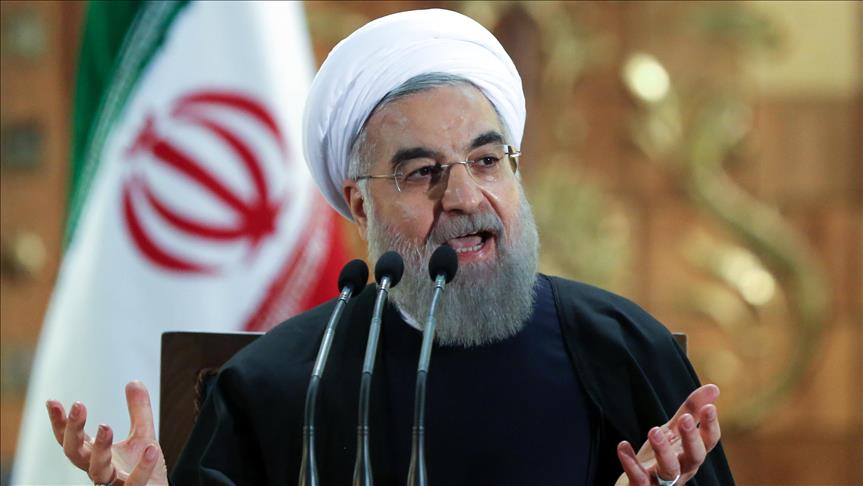
Ile-de-France
By Hajer M’tiri
PARIS
Iran and France are to usher in a new era of economic and political partnership, analysts said, as France prepares for the visit of President Hassan Rouhani following the lifting of sanctions.
Rouhani will this week become the first Iranian president to visit Europe since 1999. He arrived in Rome on Monday to meet Prime Minister Matteo Renzi and Pope Francis and is due to travel to Paris on Wednesday for a meeting President Francois Hollande the following day.
The trip comes after the bulk of sanctions imposed on Iran by the UN, U.S. and EU were dropped following a historic deal between Iran and world powers over its nuclear program.
The revival of trade between Europe and Iran is expected to see European companies scramble to return business with Iran return to pre-sanction levels.
A potential deal with Airbus for the purchase of 114 aircraft was announced by Iran’s transport minister on Sunday and is expected to be the first of many deals with the former pariah state.
Thierry Coville, a research fellow at the French Institute for International and Strategic Affairs, said Rouhani’s visit would be “important for trade but it is more important for diplomacy”.
The president’s November trip was cancelled due to the Paris terror attacks and Colville told Anadolu Agency this week’s visit would determine future diplomatic relations between France and Iran.
Iran has been the subject of sanctions since 1979 but there was an expansion in the early 2000s amid raised concerns over uranium enrichment.
“Due to the sanctions imposed on Iran, all French companies retreated from the country,” Colville said. “On the political level, relations were even worse as France had a very radical stand during the nuclear negotiations, even more than the U.S.”
In September 2014, France’s largest business federation, Medef, visited Iran - the world’s seventh largest oil producer - in an attempt to build ties ahead of expected rapprochement.
Oil production
As Tehran looks to boost oil production by 1 million barrels a day, Rouhani announced earlier this month that he anticipated 8 percent growth would be achieved with the help of up to $50 billion in foreign investment yearly.
With the lifting of sanctions and the release of billions in frozen assets, French companies are competing with international rivals for a slice of Iran’s oil wealth.
“French companies will gain a big market within different sectors,” Colville said. “Iran will have a parliamentary election next February, so it is very important to show that the country is working to improve its economic situation and normalize relations with the West.
“This is a country rich with oil, gas, with an urban population of 70 percent and a large middle class. It is an emerging market. There is not an area where there are no opportunities.”
Colville said Iran had a long list of sectors that need urgent investment after years of isolation, particularly infrastructure, water supply and environmental protection.
Beyza Unal, a research fellow at Chatham House in London, said it was vital to reintegrate Iran into the world economy.
“One aspect for France and other European countries is to integrate different sectors in the country,” she told Anadolu Agency. “The banking sector, for instance, is key to be able to process payments to and from Iran without difficulties and to be able to sustain trade with Iran.”
Unal said French companies should exploit the “window of opportunity from unfrozen assets” to step up investment in Iran. “Concerns over risks and market instability would mean to miss the market share opportunity.”
As well as aviation, the motoring industry is another field where France will hope to rekindle pre-sanction business.
Peugeot Citroen sold a million cars in Iran before leaving in 2012 and Renault also had a large share of the Iranian car market.
Renault CEO Carlos Ghosn described Iran as a “very promising market” with the capacity to buy up to two million vehicles a year.
Syria policy
For France, the political agenda is dominated by Syria, where Iran is a major supporter of President Bashar al-Assad. The country’s civil war has risen up the French political agenda since it emerged that some of the Paris attackers spent time in Syria fighting with Daesh.
“After the deal, it is as if a new software is implemented… with Iran showing that is ready to interact fully with the international community,” Bernard Hourcade, a senior research fellow at the National Center for Scientific Research, said.
“France and Iran have the capacity to solve the war in Syria through negotiations. The two countries have the same enemy - Daesh.”
Hourcade described a major shift in France’s Syria policy following the Paris attacks. “It is clear now when we speak with French policymakers - they know that Bashar al-Assad is not the problem… he is not attacking France and Europe, Daesh is.”
Seyed Hossein Mousavian, a former Iranian diplomat and newspaper editor, said the West had come to a “better understanding of Syrian crisis” and no longer opposed Assad but was now “convinced he is a part of solution”.
He added: “Moreover, they have a better understanding about the threat of ISIS [Daesh], al-Qaeda and other terrorist groups. Therefore they want to cooperate with Iran to resolve the Syrian crisis.”
However, others do not see the nuclear deal and detente allowing Iran to start with a completely fresh slate.
“There is growing misinformation about sanctions relief,” Unal said. “Sanctions through human rights violations, for instance, are not lifted with this deal. Such issues are inherently separate to nuclear obligations.
“The most important point is to sustain the Iran nuclear deal and sanctions relief is a step towards sustainability, by initiating interdependency.”
Anadolu Agency website contains only a portion of the news stories offered to subscribers in the AA News Broadcasting System (HAS), and in summarized form. Please contact us for subscription options.







